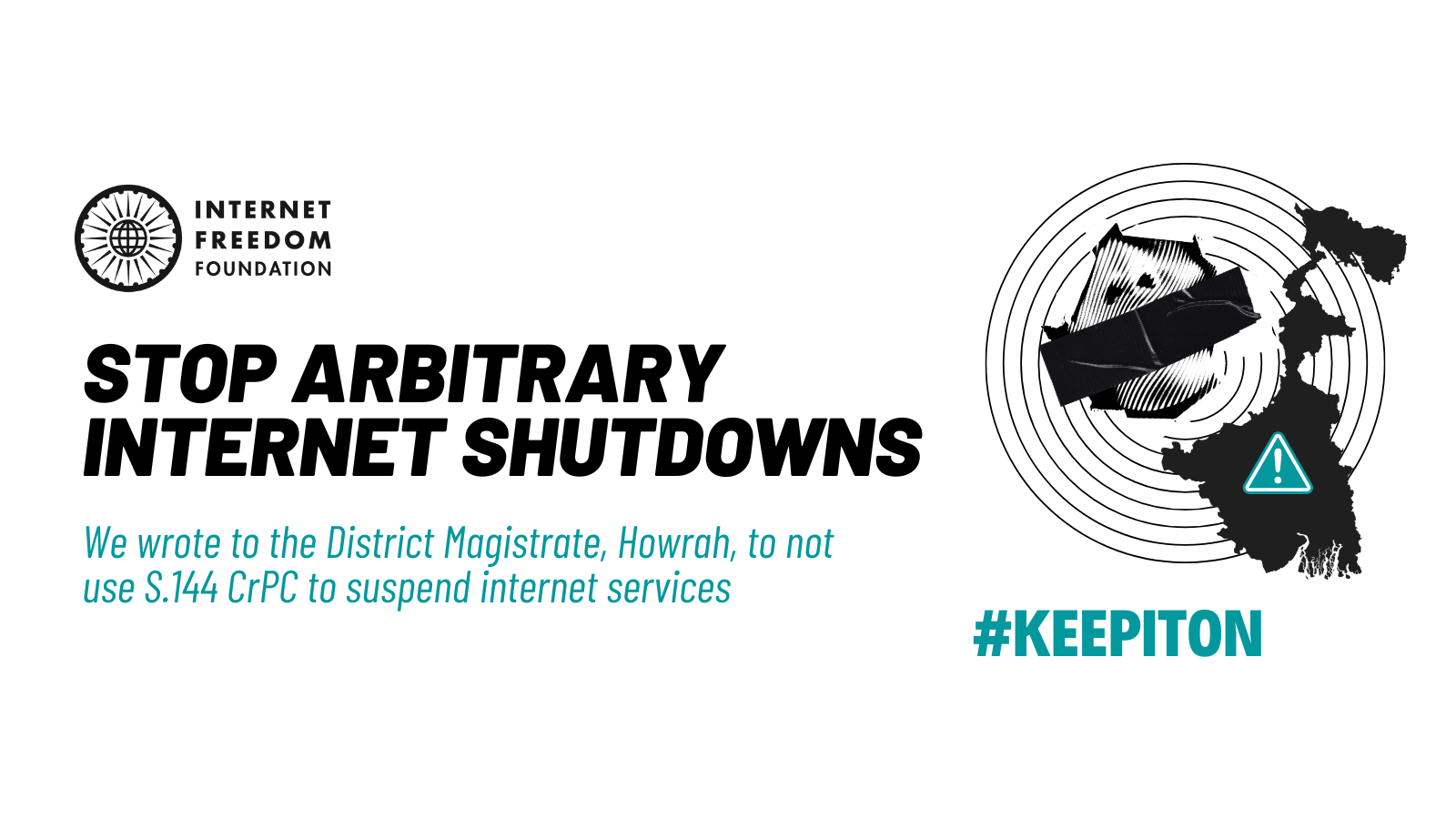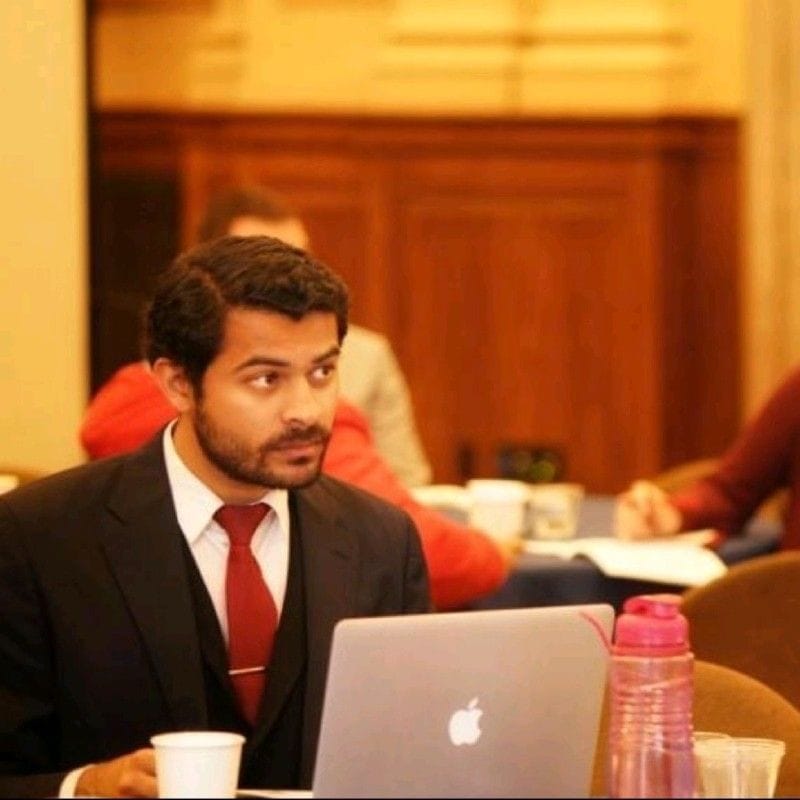
tl;dr
On March 31, 2023, the District Magistrate, Howrah District, West Bengal, issued an order for the shutdown of internet services for approximately one day starting from March 31, 2023 (“March 31 Order”). The District Magistrate reportedly issued the order under Section 144 of the Code of Criminal Procedure, 1973 (‘CrPC’). Whereas the procedure for suspension of internet services has been laid down under the Temporary Suspension of Telecom Services (Public Emergency or Public Safety) Rules, 2017 (‘Telecom Suspension Rules, 2017’). The Telecom Suspension Rules, 2017 were examined by the Supreme Court in Anuradha Bhasin v. Union of India in 2020, highlighting that since 2017 the position has changed, and states are using the aforesaid Rules to restrict telecom services, including access to the internet. We wrote to the District Magistrate, Howrah District, West Bengal stating our concern about suspending internet services under Section 144 CrPC instead of following the procedure laid down in the Telecom Suspension Rules, 2017.
Why should you care?
In 2022, India had the highest number of internet shutdowns (84 times) in the world for the fifth year in a row. Internet shutdowns are detrimental to citizens’ fundamental rights, as held by the Supreme Court of India in Anuradha Bhasin vs. Union of India, 2020, wherein it recognised that under Article 19 of the Indian Constitution, citizens have the right to freedom of expression and to carry on one’s occupation via the medium of the internet. These shutdowns also affect the economic and daily lives of citizens. Estimates are that in 2022, India experienced a loss of $184.3 million due to the internet shutdowns for 1533 hours and from 2019 to 2022, an economic loss of over $5.8 billion due to the internet not being unavailable for nearly 15,000 hours.
Why was the internet shut down?
By order dated 31.03.2023 issued under S. 144 CrPC, the District Magistrate, Howrah, West Bengal imposed an internet suspension. The order cited vague reasons such as a state of emergency “because of blockade of roads, rails and other public transports”. It also states “circulation of unsubstantiated information that would inflame public sentiments and provoke violence”. Further, to justify broadband suspension, it alluded to an “apprehension of grave risk and danger to human life”.
News reports suggest that the internet suspension was imposed in the context of communal tension following Ram Navami processions, but the order itself mentions no particulars relating to this.
We wrote to the District Magistrate, Howrah District, West Bengal
The Telecom Suspension Rules, 2017 lays down a specific procedure governments ought to follow when suspending telecom services under those rules. Under the Rules, no officer below the rank of Secretary in the Home Department (or in case of an emergency, a Joint Secretary in the Home Department) is authorised to suspend internet services in a given area.
We highlighted the Supreme Court’s observations in Anuradha Bhasin that noted the use of the procedure laid down in the Telecom Suspension Rules, 2017, over S. 144 CrPC by observing that “prior to 2017, any measure shutting down the internet was passed under s.144 CrPC” and that “[t]he position has changed since 2017, with the passage of the Suspension Rules under Section 7 of the Telegraph Act. With the promulgation of the Suspension Rules, the States are using the aforesaid Rules to restrict telecom services including access to the internet.”. Further, we highlighted the Calcutta High Court’s order in Ashlesh Biradar v. State of West Bengal, which held a specific order of suspension of the Internet under Section 144 CrPC as illegal and unconstitutional.
Conclusion
In light of the Supreme Court's guidelines in Anuradha Bhasin, strict adherence to the Telecom Suspension Rules, 2017, restrict unfettered discretion within an individual to suspend telecom services. The Telecom Suspension Rules, 2017, promotes transparency and provides procedural safeguards that will take us one step closer to avoid arbitrary internet suspensions. Thus, in the interest of the rule of law, transparency and Anuradha Bhasin guidelines, states should not use S. 144 CrPC and only resort to the Telecom Suspension Rules, 2017, when suspending the internet.
Important documents
The post was drafted by Abhinav Arora, Litigation Intern, IFF, and reviewed by IFF staffer Tanmay Singh.

